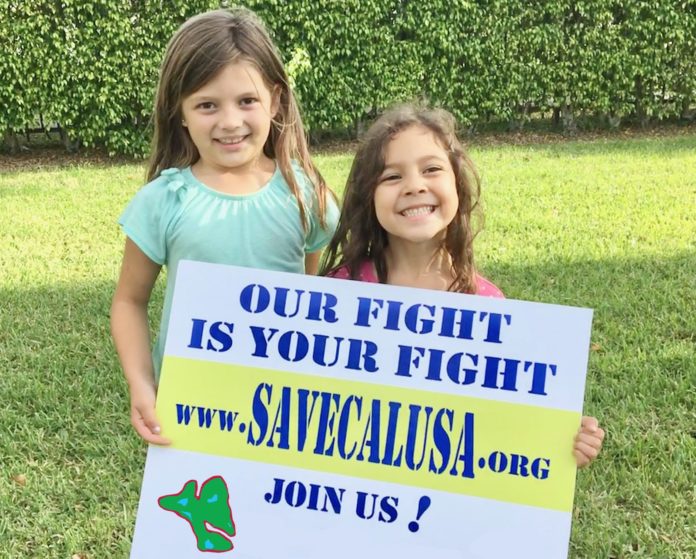Letter to the Editor:
The former Calusa Golf Course has been closed for nine years, and sits vacant and inaccessible to the public, because that’s what the owner is choosing to do with it. This isn’t a small struggling locally owned business. This is the largest privately held spirits company in the world Bacardi Limited. Its chairman of the board, Facundo L. Bacardi, purchased the golf course for 2.7 million in 2003, fully aware that there was a covenant restricting the property’s use to only a golf course. The covenant, a 99 year promise to property owners that sit on the “ring” adjacent to the golf course, dates back to 1968.
This is not a casualty of golf’s decline. The National Golf Foundation reports that actual golf participation is stable and increasing! There were more closings than openings because of a natural economic response to a 20 year supply boom ending in 2006. This doesn’t mean that those that remained open aren’t profitable. This was an expected adjustment for a known saturated market. Bacardi didn’t re-invest and make improvements in the golf course. He didn’t even rebuild the clubhouse after receiving an insurance settlement for hurricane damage in 2005. The clubhouse closed in 2005, and the golf course itself in 2011.
Reportedly, 82% of the owners with homes adjacent to the property have agreed to remove the covenant. The claim is that Bacardi and the owners have reached a settlement. Their argument is that commissioners must remove the covenant restriction to protect the golf course and owners, and finally end the litigation. But why would the owners need protection if there is a 99 year covenant in place? Why would owners trust any agreement “providing protections related to development impacts” if the covenant itself isn’t upheld?
Let’s focus on the owners, 82% initially seems impressive. That’s 120 of the 146 ring owners. Why would they agree to remove the covenant? They refused Bacardi’s initial $50,000 offer in 2012, and when he threatened legal action against the owners, they fought back! Bacardi even listed Miami-Dade County as a defendant, costing taxpayers in legal fees. They formed a Trust, to protect themselves and their community. This Trust was formed, for the collective interest of everyone involved, with the sole purpose of keeping the covenant and golf course. After years of litigation, the covenant was upheld in court in 2017! The Trust owners rejoiced together, confident that their community was protected for the remainder of the covenant.
Fast forward to January 2020. A hearing is scheduled to discuss the partial release of the covenant. Owners and neighbors are stunned, confused, outraged! What could have happened? Then they realize, the Trust that was created to protect their community, negotiated individual settlements behind their backs. There was no community outreach, no town hall meeting, no discussion of what was best for the community. The Trust didn’t even reach out to the other ring owners for their input. Owners were pitted against each other. You either signed an agreement to remove the covenant, or were excluded from all discussions and communication. Those that signed an agreement, were then bound by a non-disclosure agreement hiding the pertinent details.
The big question is, what changed the owners’ minds? The answer seems clear: upwards of 22 million dollars. The original writers of the covenant couldn’t have expected Bacardi to offer individual owners between $20,000 and $300,000 in exchange for their agreement to remove the covenant. They couldn’t have anticipated that the future developers would purchase some of the ring properties. Over the years, when property owners sold their homes, they signed an agreement preventing future property owners from having a vote on the property in their own backyards. This was not the original intention of the covenant, and this was not in the best interest of the community!
Let’s be honest. The original writers of the covenant likely didn’t foresee a situation where 75% of the owners would give away their golf course. They certainly didn’t foresee that owners’ votes could be bought, at the detriment to the rest of the owners and remaining community. They couldn’t have conceived that a golf course owner would sue the individual homeowners, in an effort to rezone the land to potentially make 100 million dollars.
Homeowners that live in the homes facing this neglected but promising golf course, and in the surrounding community, will urge County Commissioners to respect the will of those most impacted Calusa residents. These are your constituents and their voices are loud and clear. They do not want development on this 168 acre golf course. They’ve signed petitions, they’ve put up signs, and their voices will be heard at the public hearing. Who are those most impacted? It is the thousands of owners and residents that live in the immediate and neighboring communities. These voices should outweigh the few that accepted large sums of money for their own benefit, while ignoring the interests of the rest of the owners and community. Commissioners, please uphold the covenant and save Calusa!
Submitted by:
Shea Polakow
George Moussa
Sandy Lea-Oquendo
Vanessa Vazquez
For more information, feel free to email kendallstrong2020@gmail.com







Comments are closed.